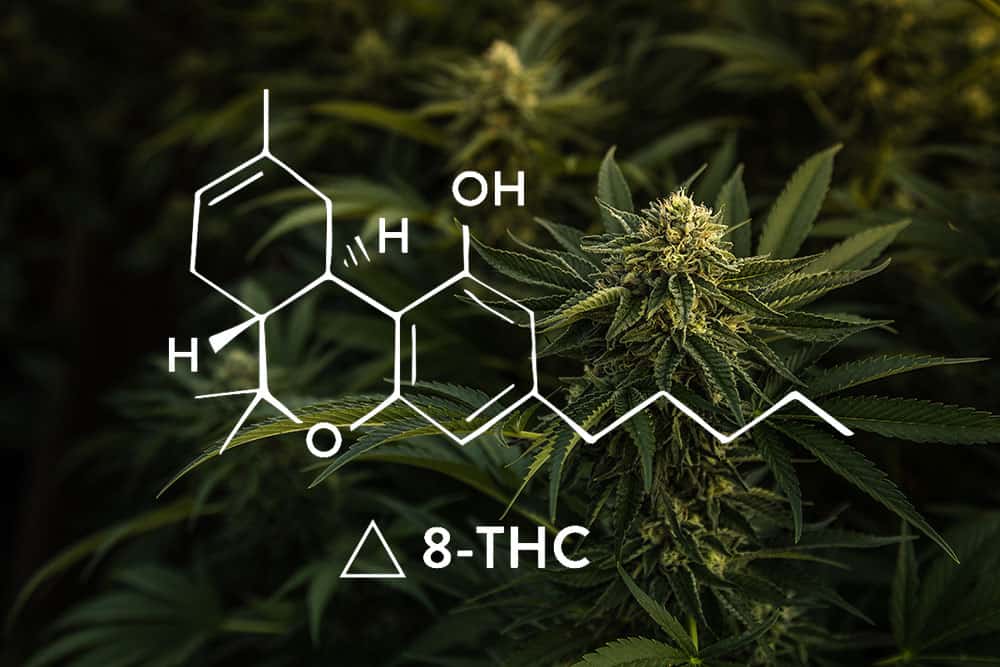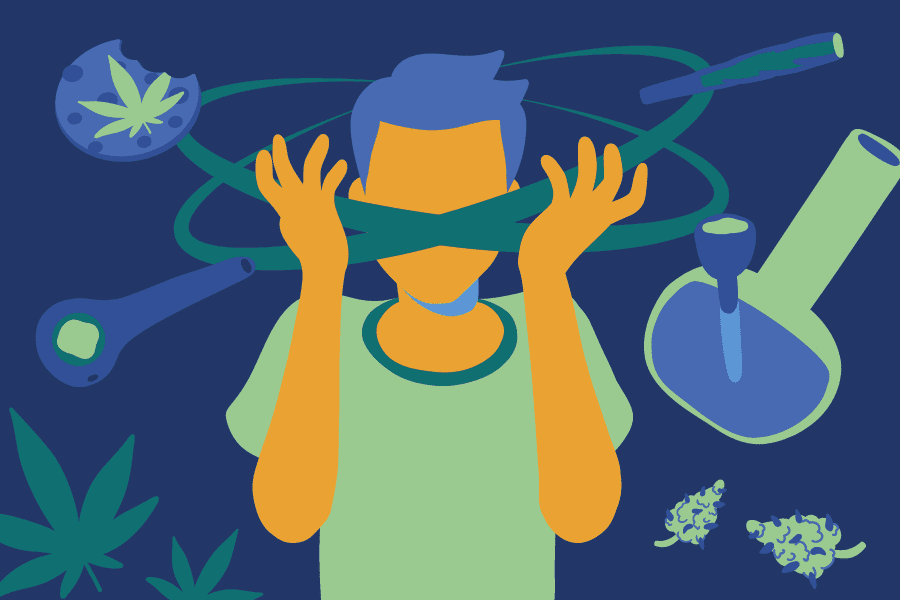Marijuana Treatment
Marijuana is a type of cannabis plant that when smoked or ingested causes a high due to the chemical in the plant called THC. The plant contains up to 500 other chemicals, including more than 100 compounds that are chemically related to THC called cannabinoids.
Overview of Marijuana Abuse
After alcohol, marijuana is the most commonly used substance by teens and young adults. In 2015, 7.3% of adults in the US had used marijuana in the past month and 58.2% of high school seniors reported having used it in the past year. Known by many names and found in many forms, marijuana is the most common name for the Cannabis plant.
Other popular nicknames include:
- Weed
- Pot
- Ganja
- Grass
- Mary Jane
- Reefer
THC
The psychoactive (or mind altering) chemical in Marijuana is tetrahydrocannabinol, abbreviated as THC. When THC enters the body, it is absorbed into the bloodstream and passes to the brain, where it attaches to specific neurons with “cannabinoid receptors”.
These neurons are a naturally occurring part of our body that is part of our inner brain communication system. Most cannabinoid receptors are found in parts of the brain that influence pleasure, memory, thinking, concentration, sensory and time perception, and coordinated movement.
Marijuana triggers an increase in the activity of the endocannabinoid system, and causes the release of dopamine in the brain’s reward centers, creating pleasurable feelings, heightened mood and the feeling of being “high.”
Is Marijuana Addictive?
Consistent marijuana abuse can lead to the development marijuana use disorder, which in severe cases takes the form of marijuana addiction. Recent research indicates that individuals who begin using marijuana before the age of 18 are 4 to 7 times more likely to develop a marijuana use disorder than adults.
Marijuana abuse is often associated with marijuana dependence which is described as a chronic marijuana user who experiences withdrawal symptoms when not taking the drug.
These marijuana withdrawal symptoms may include irritability, mood and sleep difficulties, decreased appetite, cravings, restlessness, and/or various forms of physical discomfort and typically peak within the first week after quitting and last up to 2 weeks following the last use.
Over time, marijuana dependence develops as the brain adapts to large amounts of marijuana use by reducing the production and sensitivity of its own endocannabinoid neurotransmitters.
Marijuana dependence becomes marijuana addiction when individuals are unable to stop using the drug even though it interferes with many aspects of their lives. Recent studies indicate that up to 17% of teenagers who use marijuana will become dependent on it.
Effects of Marijuana
Potential Effects on the Body:
- Stress on the lungs including coughing, sputum and bronchodilation
- Potential contributor to cardiovascular disease
- Weight gain due to an increased appetite and decreased desire for physical activity
- Decreased attention to hygiene
Potential Effects on the Brain:
- Mental health/memory issues Feelings of anxiety, panic, impaired attention and memory, both in the moment and long term.
- Increased potential of psychosis Including psychotic episodes while “high” and a potential to trigger latent psychotic disorders and mental health issues.
- Dependence Being abnormally tolerant to and feeling the need to be high.
- Withdrawls Including craving, irritability, boredom, anxiety and sleep disturbances.
- Intellectual stunting Heavy, chronic use in teens may result in a lower IQ later in life.
- Emotional stunting Inability to process emotions, which can lead to deeper emotional distress and potential self harm/suicide.
- Creation of reward-seeking patterns The dopamine release from THC interaction in a brain that is still growing (generally until about age 25) can result in a permanently decreased ability to delay gratification or exercise impulse control.
Potential Effects on a Young Person’s Social System:
- Legal issues Such as fines, imprisonment, and permanent record issues. These can be substantial, expensive, and potentially long lasting.
- Irresponsible behavior Decreased ability to fulfill responsibilities.
- Decreased achievement As a teen’s attention, memory, and focus is compromised their academic achievements may suffer.
- Damaged relationships If marijuana replaces relationships with friends of family or becomes a stand-in for emotional processing.
Further Cautions
With illegal substances, there is no governing body overseeing a drug’s purity or potency. When buying Marijuana, there is no guarantee of what one is actually purchasing. The plants might be grown with toxic pesticide and herbicides, or the drug can be laced with additional substances including amphetamines, “synthetic marijuana” and/or other chemicals.
While federally illegal, several states in the U.S. have legalized both medical and recreational Marijuana in the past few years, increasing the societal acceptance of the drug and prevalence. However, even in states where Marijuana is legal, the minimum age for recreational consumption is 21, like alcohol.

Why do Teens & Adults use Marijuana?
- Peer pressure To fit in with others. The notion that “everyone else is doing it” makes many young people not want to be the odd one out.
- To connect with friends Many substance users bond over their clandestine connection to the substance and the culture surrounding it.
- Experimentation or identity creation Adolescence and young adulthood is often a time of testing: family boundaries, societal expectations, and personal beliefs. Marijuana is a common way to fulfill these desires: it is easy to obtain and, aside from potential legal troubles, it has lower risk in short term use than many other substances.
- Response to stress For some Marijuana my numb stressful life transitions such as a move, divorce, or teenage hormones.
- Predisposition Due to a chemical imbalance or genetic predisposition to substance use.
- Pop culture In response to popularization by film and music.
- For enjoyment The feeling of marijuana use, which can include euphoria, relaxation, change of perspective, and lowered inhibitions.
Indications of Marijuana Use
- Lack of energy
- Increased appetite
- Red or half-closed eyes
- Change of social circle
- Current social circle associating with marijuana paraphernalia
- Presence of paraphernalia (pipes, papers, small bags, pill containers, or marijuana-positive art and music)
- Increased financial demand While marijuana is relevantly inexpensive, as a habit develops, the user will tend to need more capital to sustain their use.
Marijuana Addiction Treatment Options
If you or your loved one lives in the US, chances are you or they have been offered marijuana and may have tried it. If you’re concerned about marijuana experimentation, use, or abuse, seek support and treatment. While marijuana use is often trivialized in American society, the detrimental effects are real and can be long lasting.
Talk to a professional about your concerns, get advice and coaching, and talk to your loved one about the potential risks and patterns of use and abuse.
A strong bond created through an open, honest relationship built on positive experiences with your teen or young adult is the best way for your loving opinion to matter, and sometimes even that needs to be supplemented with outside support.


Online Treatment Programs
Our virtual IOP program offers the same programming that we offer in person, all online – this is ideal for those who live too far to drive to an addiction center, have transportation issues, or have health concerns that make in-person treatment challenging.




